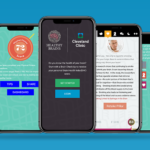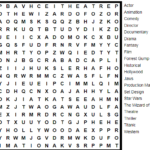
6 Expert Solutions for Resolutions
It’s that time of a year again. Time to take inventory on what needs improvement in your life. Why not start at the top with your brain? As we age, it’s a good idea that we take measures to protect our body’s most vital organ.
Include the 6 Pillars of Brain Health in your new year along with this wise advice from our brain health experts.

1- Get a variety of exercise
Brent Bluett, DO, neurologist and one of our Movement Disorders Specialists, plans to continue to exercise daily but to modify his regimen so that it includes a healthy balance of cardiovascular, strength, and core training. New to exercise? Dr. Bluett says,
“Our goal is to motivate and encourage our patients who can exercise safely to do so; to help improve their overall body and brain health. Ask your healthcare provider to recommend exercises and resources to help get you started”.
Tip: Try Tai Chi. This ancient practice is a great way to exercise both mind and body which can double the benefit to your brain. Check your local YMCA or recreational center for classes.

2- Eat more fish and veggies
Aaron Ritter, MD, neuropsychiatrist and our Director of Clinical Trials, admits to indulging on too many burgers and fries in 2017. This year, along with more exercise, “I’m choosing to make smart swaps at mealtime like a green, leafy salads instead of French fries or grilled fish tacos instead of a cheeseburger.”
Tip: Eat more fish. Bake, broil or steam wild-caught Salmon at least twice a week. It’s a super source of brain healthy Omega-3-fatty acids- a nutrient your body needs but cannot produce.

3- Get out there and be more social
Dylan Wint, MD, neurologist, psychiatrist, and our NV Energy Chair for Brain Health Education, says, “Socializing is more than just being around other people. It means interacting with others, exchanging ideas, feelings, and even facial expressions. I will try to be more social when I attend events by having a conversation with at least one new person whenever I go out.”
Tip: Can’t remember names? To help, try immediately repeating the new name in a sentence followed by a question, like “It’s nice to meet you Gerald. Is Gerald a family name?”

4- Learn Something New
Donna Munic-Miller, Ph.D., our staff psychologist, says, “ To keep my mind stimulated, I continually strive to learn something new. This year, to improve my coordination, challenge my brain and try something fun, I’m channeling my inner Ringo Starr and learning how to play the drums!”
Tip: Use your other hand. To challenge your brain, if you’re right-handed, try doing daily activities with your left hand (or vice versa).

5- Get a Good Night’s Sleep
Jeffrey Cummings, MD, ScD, Director, Lou Ruvo Center for Brain Health and renowned neuroscientist in Alzheimer’s research, says, “Sleep is the most important part of brain health that does not require you to do anything – just sleep. Toxic proteins are cleared from the brain during sleep and good sleep is critical to brain health. Best medicine? Get to bed early tonight.”
Tip: Adopt a sleep routine. Perform a relaxing ritual every night plus keep the same sleep and wake time every day- even weekends. Your smart phone may have a bedtime clock and chime to aid you.

6- Improve your overall health
Charles Bernick, MD, neurologist and our Associate Medical Director, says “This year I resolve to focus on lowering my borderline high blood sugar and cholesterol as well make sure my blood pressure is staying in a normal range, as these can be risk factors for Alzheimer’s and dementia. My wife pledges to remind me.”
Tip: Keep it in check! Make wellness a priority in 2018. High blood pressure, cholesterol and blood sugar can all contribute to brain decline.
Can you improve your Brain Health Index in 2018? We think so! Kick-off the New Year by re-taking your brain health assessment at healthybrains.org/braincheckup. Email us at [email protected] if you have trouble logging-in or can’t quite recall your password.









